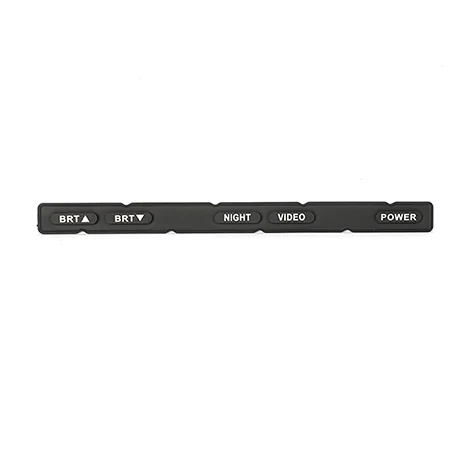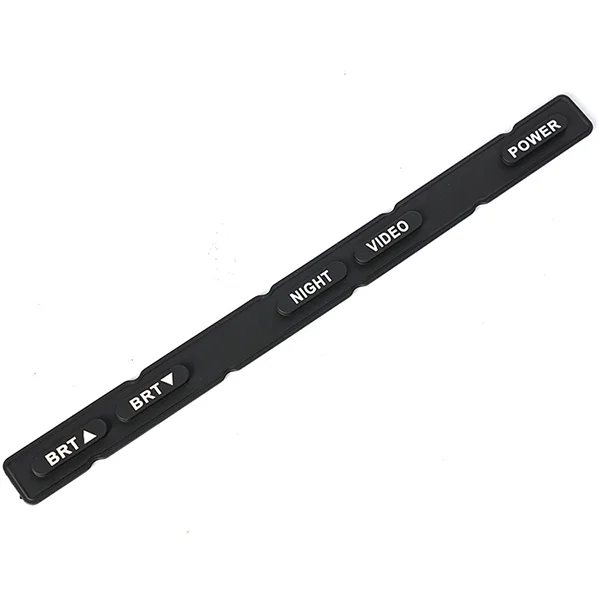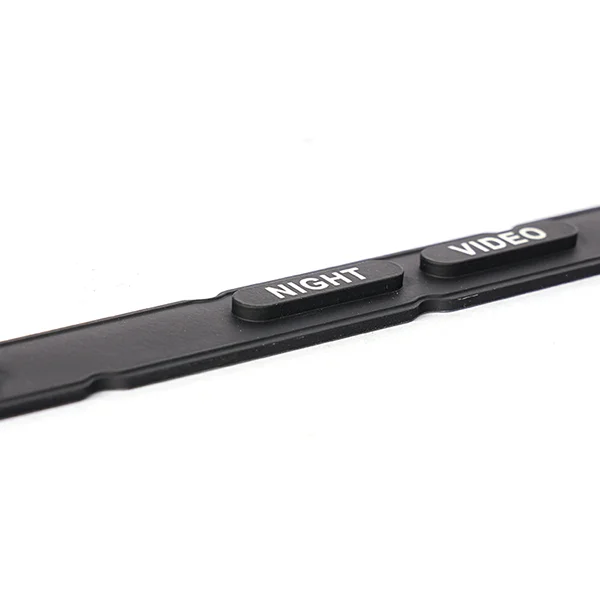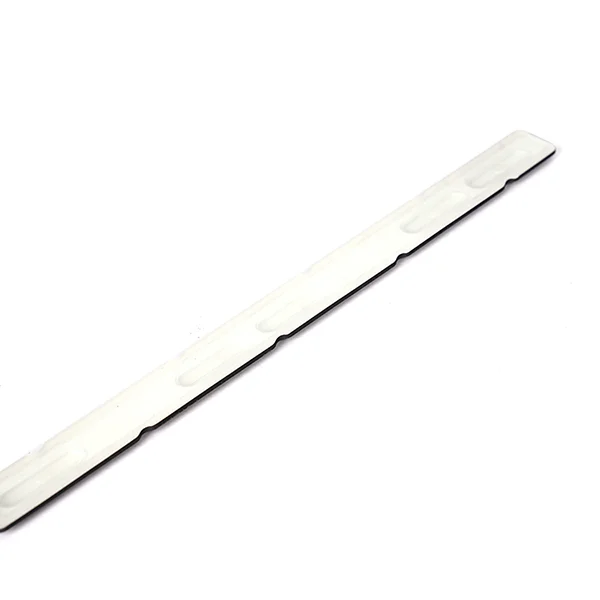Silicone Rubber Keyboards for Control panels for machinery
The membrane switch has a well-structured design, an attractive appearance, and excellent airtightness. It is characterized by a long lifespan and finds widespread applications in electronic communication, electronic measuring instruments, industrial control, automotive industry, smart toys, household appliances, and other fields.
-
Panel material:PVC, PC, PET
-
Insulation resistance:>=100VDC
-
Rebound time:<=6ms
-
Loop resistance:≤ 80Ω (within 40cm of a single key return route)
-
Trip force:160~450g
| Basic Parameters of Tactile Membrane Switch | |
| Max. Panel size | 600*800mm |
| Max. Panel size (with emboss) | 400*500mm |
| Paste | silver paste, carbon paste |
| Ink color | red, black, blue, white, yellow, green, purple, etc |
| Trace width | 0.15-0.20mm |
| LED spec. | 0402, 0603, 0805, 1210 |
| Wire length | Per customer requirements |
| Waterproof class | IP65 |
| Connector | female pin, male pin |
| Metal dome types | triangle, for-legs, circle |
| Trip force (metal dome) | 280g, 340g, 450g |
| Travel (metal dome) | 0.35-0.71 |
| Diameter (metal dome) | 8.4mm, 10mm, 12.2mm |
| Surface treatment (metal dome) | gold plating, nickle plating, stainless |
| Back adhesive | DSMS, 3M, SOKEN |
| Citcuit board option | FPC, PCB, Aluminum |
| Panel material | PET, PC, TPU, PMMA |
Generally, substrates with a thickness of 0.25mm or less are referred to as membranes, primarily used as the panel layer for membrane switches. The top graphic overlay is printed with various indicative patterns and text, indicating the operational area corresponding to the switch positions. The choice of thickness depends on the size of the panel and keys; thicker materials result in increased tactile feedback but slower response, while materials that are too thin may feel less comfortable with unclear rebound. Thicknesses above 0.25mm are termed sheets and are not suitable for three-dimensional key forming. They can be used as indicator panel layers for areas without keys or as backplates for membrane switches to enhance their hardness.
Client Profile:
TTV Electronics, a prominent player in the field of machinery controls, approached Yu An Electronics to elevate the user interface of their control panels for industrial machinery. Their goal was to address challenges related to robustness, tactile precision, and an ergonomic design tailored for control panel applications in demanding industrial environments.
Project Challenges:
TTV Electronics faced challenges in optimizing the control panel interface for enhanced user experience in industrial machinery settings. The design needed to address issues such as tactile precision for accurate inputs, durability to withstand harsh industrial conditions, and an ergonomic layout for seamless interaction. The requirement for a solution that could resist environmental factors and provide reliable performance under varying conditions added an extra layer of complexity.
Our Solutions:
We introduced Silicone Rubber Keyboards for the control panels in industrial machinery. Because these keyboards incorporated advanced features to meet the specific challenges posed by the industrial environment. The design focused on providing precise tactile feedback, ensuring accurate inputs for machinery controls.
Customer’s Feedback:
Following the implementation of Yu An Electronics Silicone Rubber Keyboards into the control panels for machinery, TTV Electronics reported a substantial enhancement in overall performance and user satisfaction. Operators appreciated the precise tactile response, durability, and the keyboards’ ability to deliver reliable performance in the challenging conditions of industrial settings. The successful integration set a new standard for control panel interfaces in machinery, earning accolades and laying the foundation for future innovations in industrial control technology.
Contact us online





